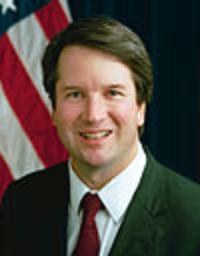Dear Editor,
In the Oct. 11 edition of The Collegian, Ms. Krystina Skurk argued that Hillsdale should invite newly confirmed Supreme Court Justice Brett Kavanaugh to speak at the 2019 commencement ceremony. This proposition would do a great disservice to the students and mission of Hillsdale College.
To begin, the intention of this response is not to rehash the debacle surrounding Justice Kavanaugh’s confirmation. While I am disheartened and disturbed by the timing and nature of the allegations levied against Justice Kavanaugh, I am personally happy that he was confirmed since there was little corroborating evidence to disqualify him from ascending to the Supreme Court. With that said, inviting him as our 2019 commencement speaker would not be a good decision.
In the opening of her piece, Ms. Skurk writes “Brett Kavanaugh will be President Donald Trump’s greatest legacy. For the first time in generations, the Supreme Court has a conservative majority. To celebrate this new era of American politics, Hillsdale should invite Supreme Court Justice Brett Kavanaugh to speak at its 2019 Commencement.” This raises the essential question: What is the point of a commencement speaker in the first place? Is it simply a way to fill the June edition of Imprimis and cater to the friends of Hillsdale College, or does it stand for something more? It should be obvious, but commencement itself and the speakers invited to address it exist to celebrate the graduating class, their parents, and the Hillsdale faculty that have worked tirelessly to educate these students for the past four years. Commencement is not a time to celebrate a new era of conservative politics, but rather a time to celebrate a crop of young people who have received a liberal education, hopefully preparing them for the challenges they are sure to face. While politics and citizenship are an important part of life, a classical education from Hillsdale teaches us that there is much more to it than what goes on in Washington D.C. A Hillsdale education teaches its students the importance of living as good people, good spouses, good children, and good parents along with living as good citizens. Emphasising the latter over the former mischaracterizes the mission of a classical liberal education.
In defense of her proposition, Ms. Skurk continues: “Just like Hillsdale, Kavanaugh is a bulwark against progressive liberalism.” Once again, this caricature of Hillsdale is misleading. And ironically, it’s typically adopted by those that oppose Hillsdale rather than those who support it. While it is true that Hillsdale in many ways stands firmly against modern day progressive politics, it is far more important to note that Hillsdale stands for much more. Characterizing us by our achievements in Washington hollows out the core of Hillsdale College and the eternal principles it stewards. Hillsdale was founded on principles that precede the American Progressive movement and, God-willing, will outlast it as well.
Ms. Skurk writes, “Kavanaugh embodies much of what Hillsdale as an institution stands for. As a textualist, Kavanaugh cares about the correct interpretation of the Constitution and he understands that government exists to protect individual liberties.” She also lays out the case that Kavanaugh is by all accounts a good, God-fearing man who is a pillar for his family and community. I do not disagree with her assertions, but it does raise another important question: Would Brett Kavanaugh even be on the short list of commencement speakers if not for the recent political scandal surrounding him? If he was never nominated by President Trump and was still a judge on the D.C. Court of Appeals, would Ms. Skurk still be touting him as the ideal 2019 commencement speaker? I hazard to say that Kavanaugh’s appeal rests more squarely on the conservative political clout his invitation would gain the college and the statement it would make rather than the substance of his words to the graduates or the respectable background he may possess.
Finally, Ms. Skurk touts Kavanaugh’s agenda as “an advocate for social change. As he told the Senate Judiciary Committee, ‘A majority of my 48 law clerks over the last 12 years have been women.’ Kavanaugh has sent more female law clerks to the Supreme Court than any other judge in the country.” Obviously there is nothing intrinsically wrong with Kavanaugh’s actions, but why are they inherently worthy of praise? Since 1844, Hillsdale has sought to “to furnish all persons who wish, irrespective of nation, color, or sex, a literary, scientific, [and] theological education.” Why should we flaunt how well we adhere to progressive standards of identity politics that Ms. Skurk proudly proclaims we stand so firmly against? Hillsdale sees people as individuals and we should celebrate Kavanaugh’s clerks for their attributes and abilities, not simply because they are women. Hillsdale College refuses federal funds so that it does not have to count its students by arbitrary characteristics — we should not all of the sudden celebrate these characteristics simply because doing so may be expedient in the present.
As stated before, this is by no means a referendum on Brett Kavanaugh. If during his time on the Supreme Court he continues to promote the values of the Western and American traditions and stand up for the same eternal principles of Hillsdale College, than I would be honored to have him speak at a commencement ceremony, just as Justice Clarence Thomas did three years ago. But those should be the merits on which we invite Justice Kavanaugh, not simply because he can teach our students to have “audacity,” as Ms. Skurk suggests, or because it makes a bold political statement to the country.
Erik Halvorson is a senior studying economics and a columnist for the Collegian.


